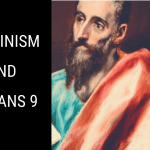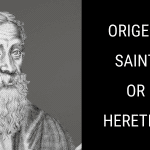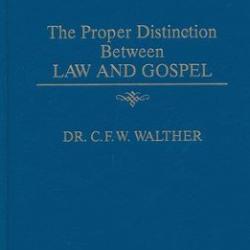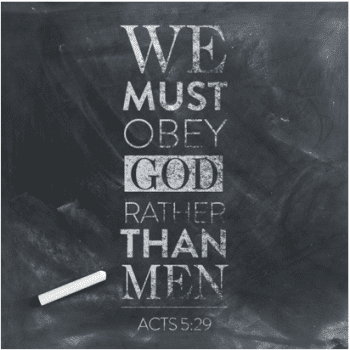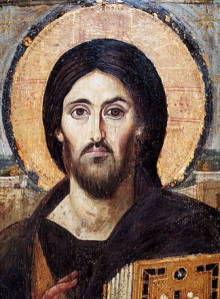
+++
Therefore, you kings, be wise;
be warned, you rulers of the earth.
Serve the Lord with fear
and celebrate his rule with trembling.
Kiss his son, or he will be angry
and your way will lead to your destruction,
for his wrath can flare up in a moment.
Blessed are all who take refuge in him.–Psalm 2
You know, just asking.
Looking at the approaches of most modern Christian theologians when it comes to the issue of religion and politics, one will find that they tend to quite neatly separate church and state.
And it seems these theologians are often holding one another in check. In a recent piece at Patheos, titled “Even a Liberal Theocracy is Still a Theocracy,” Reformed theologian D.G. Hart takes aim at persons on the evangelical Christian left (via his critique of Alan Cross), who, he says, do the same thing as the Christian right by trying to influence government with Christian principles (why, one might wonder, do people only tend to complain about “Christian nationalism” when it comes to the Christian right?)!
Its a smart essay, but the final impression left by Hart is that any legislation done by Christians not under the auspices of reason alone (perhaps by appealing to natural law arguments alone) is suspect and not really in line with “two kingdoms” theology. One reason such efforts are suspect, Hart says, is that Christians today are necessarily selective as they try to legislate God’s moral law (Mormons are in violation of the First Table of the Commandments, for example, but as regards responsibilities towards God, no Christian legislators are looking to strengthen blasphemy laws).
In this exchange any Christian interested in political theory should check out, I think @yhazony (https://t.co/6NFFyZGmSE) gets the better of L. Joseph Hebert (https://t.co/qfDoOOaGpv). Our ultimate standard must be Scripture, not human reason, which twists natural law.
— Theology Like a Child (@Infanttheology) February 21, 2019
Another word for Hart’s “liberal theocracy” could be “Soft Constantinianism,” a term coined by the evangelical theologian Scot McKnight. This is the label he applies to the “Chicago Declaration of Evangelical Social Concern,” for example, actually signed in 1973 by evangelicals whose political orientations were across the spectrum (from Carl F. Henry to Vernon Grounds to Jim Wallis to John Howard Yoder).
I find it very interesting that McKnight says that the desire to influence the state in a Christian direction in order to back up the Christian voice necessarily means Christians give final authority to the state (217, Kingdom Conspiracy). What is he getting at?
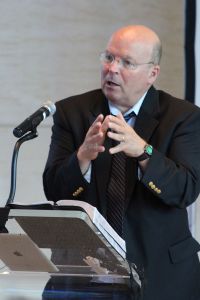
Below is this 1973 statement. What do you think of the statement? McKnight’s take on it?
As evangelical Christians committed to the Lord Jesus Christ and the full authority of the Word of God, we affirm that God lays total claim upon the lives of his people. We cannot, therefore, separate our lives from the situation in which God has placed us in the United States and the world.
We confess that we have not acknowledged the complete claim of God on our lives.
We acknowledge that God requires love. But we have not demonstrated the love of God to those suffering social abuses.
We acknowledge that God requires justice. But we have not proclaimed or demonstrated his justice to an unjust American society. Although the Lord calls us to defend the social and economic rights of the poor and oppressed, we have mostly remained silent. We deplore the historic involvement of the church in America with racism and the conspicuous responsibility of the evangelical community for perpetuating the personal attitudes and institutional structures that have divided the body of Christ along color lines. Further, we have failed to condemn the exploitation of racism at home and abroad by our economic system.
We affirm that God abounds in mercy and that he forgives all who repent and turn from their sins. So we call our fellow evangelical Christians to demonstrate repentance in a Christian discipleship that confronts the social and political injustice of our nation.
We must attack the materialism of our culture and the maldistribution of the nation’s wealth and services. We recognize that as a nation we play a crucial role in the imbalance and injustice of international trade and development. Before God and a billion hungry neighbors, we must rethink our values regarding our present standard of living and promote a more just acquisition and distribution of the world’s resources.
We acknowledge our Christian responsibilities of citizenship. Therefore, we must challenge the misplaced trust of the nation in economic and military might – a proud trust that promotes a national pathology of war and violence which victimizes our neighbors at home and abroad. We must resist the temptation to make the nation and its institutions objects of near-religious loyalty.
We acknowledge that we have encouraged men to prideful domination and women to irresponsible passivity. So we call both men and women to mutual submission and active discipleship.
We proclaim no new gospel, but the Gospel of our Lord Jesus Christ who, through the power of the Holy Spirit, frees people from sin so that they might praise God through works of righteousness.
By this declaration, we endorse no political ideology or party, but call our nation’s leaders and people to that righteousness which exalts a nation.
We make this declaration in the biblical hope that Christ is coming to consummate the Kingdom and we accept his claim on our total discipleship until he comes.
November 25, 1973, Chicago, Illinois
McKnight’s main answer to political activism in his book Kingdom Conspiracy, by the way (whether of the kind from the Christian right or the left), is that generally speaking, Christians should primarily seek to do the will of the Lord among one another, in their local congregations, as opposed to the wider world.
Certainly, McKnight has a point in drawing our attention to this truth (see Galatians 6:10, for example, which he often quotes). And along those lines, here is a short article on “Justice and Poverty” from the Lutheran Study Bible, written by Concordia College New York (Bronxville) President John Nunes (found by looking up “Social Justice” in the index, another “hot topic” these days!):

“The OT contains more legal and prophetic material about the poor and the powerless than any other societal problems. In both narrative and prophetic texts, a strong relationship exists between righteousness — the cornerstone of the Christian doctrine of justification — and justice. In Hebrew and Greek, righteousness and justice share root words. As justified believers — made right with God entirely though Jesus Christ — our attitude toward and treatment of the poor is a fundamental justice question. Questions of justice inevitably flow from the faith of the justified ones. God says to his people, “Therefore I command you, ‘You shall open wide your hand to your brother, to the needy and to the poor, in your land'” (Dt 15:11). When the weak are oppressed and the needs of the poor come to God’s attention, the psalmist writes that God “will now arise.. I will place him in the safety for which he longs” (Ps 12:5).
More than half of Jesus’ parables (17 or 29 in the Synoptic Gospels) concern money. These parables lay out the perils of misplaced priorities; they are stories of the disordered, upside-down lives of people whose long term “investments” expire prematurely. Jesus urges his disciples to invest in the Kingdom, in God’s people, in those who are poor and needy in the eyes of the world. Followers of Jesus stock up on true righteousness and justice, rather than on riches that rust or fade away.
God’s Word addresses situations that sound similar to our modern context (cf Dt 15:7;24;14, 17)… In Ps 41:1, we hear a beatitude of brotherly love: “Blessed is the one who considers the poor!” In any society, there will be those who are too weak to “make it” — those who aren’t strong or resilient enough, who aren’t skilled or tough-willed, who lack the “right stuff” to make the right connections. Such individuals often are marginalized. We see, all too clearly, where they stand. The question is Where do we stand? Do we stand with them?
As God’s redeemed people, we have the calling — and opportunity — to be openhanded and tenderhearted toward those in need, not hard-hearted and tightfisted.”
Adapted from John Nunes, Voices from the City (St. Louis: Concordia, 1999), 34-36.
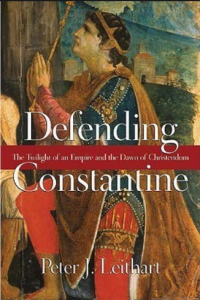
Is this kind of work, however, something that Lutherans like Nunes believe should only be done by the church, by local congregations, and not the secular (secular meaning “of the earth” or “of the world,” not in any anti-God sense) government?
In other words, are conservative Lutherans (Nunes is LC-MS) necessarily with Hart and McKnight? Today, that does tend to be the case…
That said, not in the past at least, says a friend of mine who knows these issues well. When it comes to the matters discussed by Nunes, for example, he points out how the materially poor and other “socially marginalized groups and their treatment” were core concerns of Martin Luther. And what did Luther suggest was the way to address the problem? The Reformer advised moral exhortation to both the rich and the poor, individual charity, collective / government financial support, and legislative reforms that both freely and reasonably drew from Old Testament examples. Luther, my friend pointed out, thought and wrote about these things before the modern “conservative” / “liberal” divide that so often equips us with blinders… resulting in a narrower set of approaches to what amounts to a big problem.
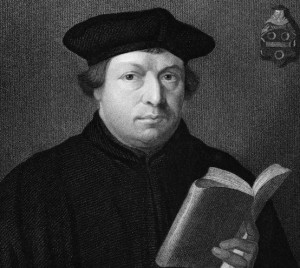
Still, that was then, this is now, right? Things kept changing…
In America in the 17th century, the famous Rhode Island Baptist Roger Williams argued for “soul liberty” and the idea that the church and state should be very separate because the state was not competent to judge persons by the Scriptures (no promulgating and enforcing the First Table of the Ten Commandments because there were contradictory readings of Scripture).
And yes, even Martin Luther in the 16th century said “the distinction of true from false doctrine is per se no concern of the secular authorities”. Therefore, it seems reasonably to argue that Luther’s logic leads to saying, for example, that there is nothing Christian rulers can do to prevent Christian churches–surely an integral part of the culture they oversee!–from fracturing into pieces (as Constantine, and, perhaps ironically, German princes in the late 16th century appear to have done by making the theologians talk and work out their differences).
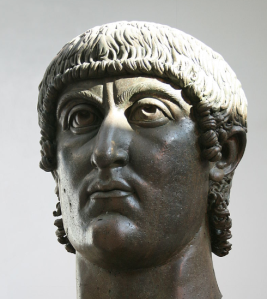
More on the “First use of law” (i.e. the “political use of the law” — for Calvinists this is the “second use” of the law) in the “Kingdom of the Left” (no, that’s not the modern left and/or the Democrats!) in my next post here.
FIN

